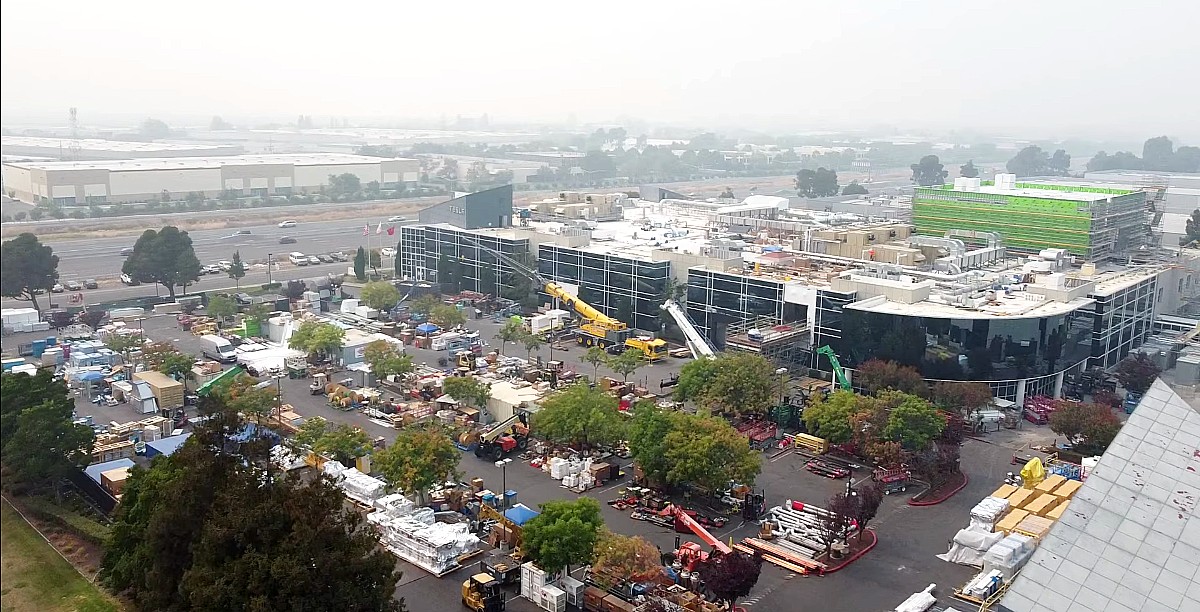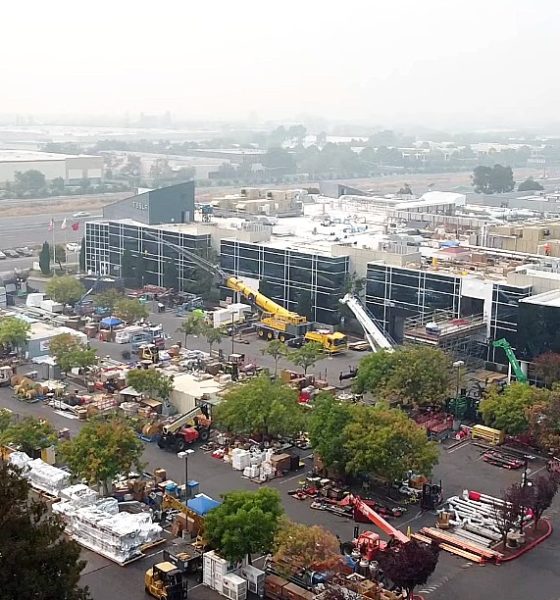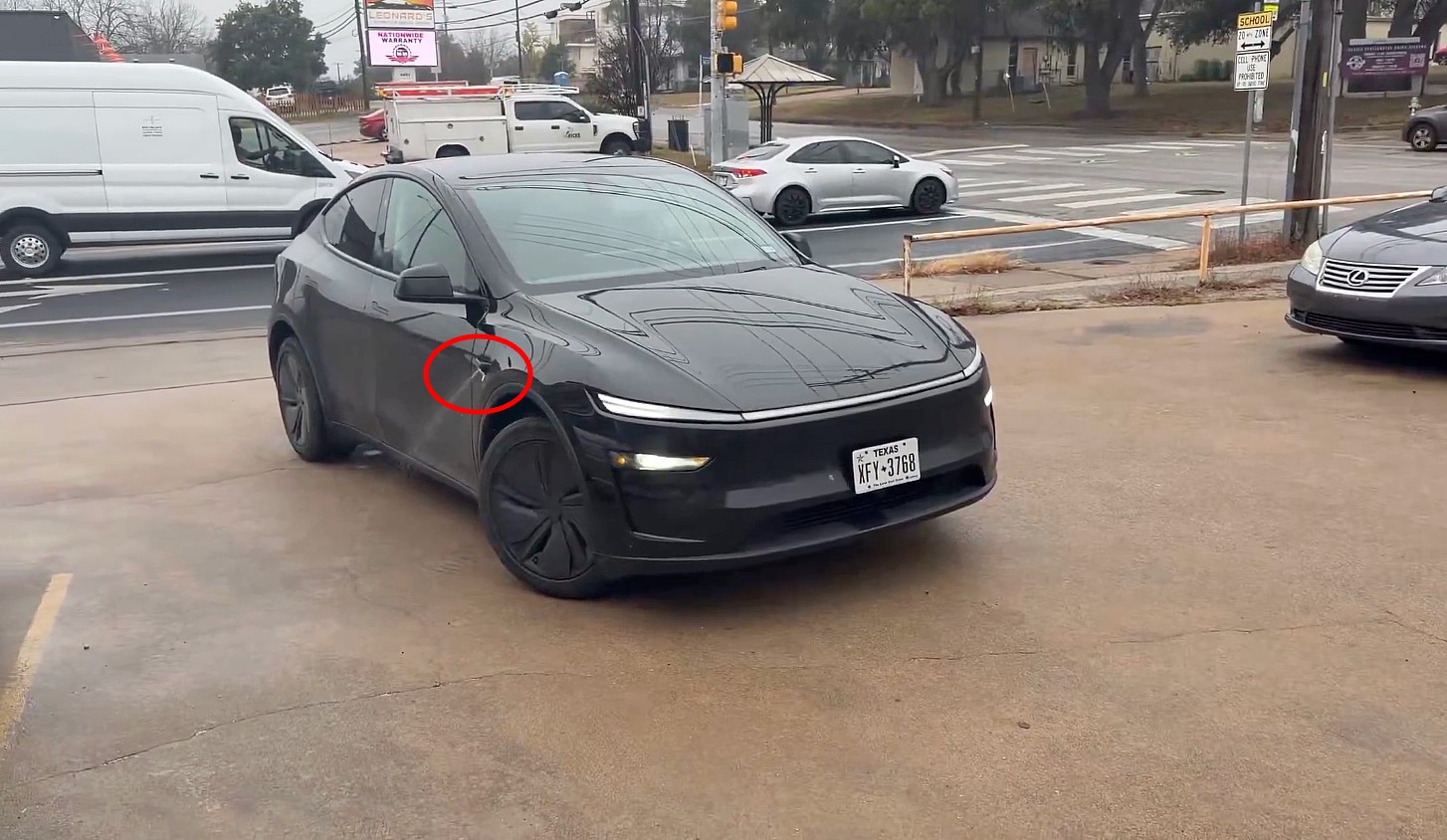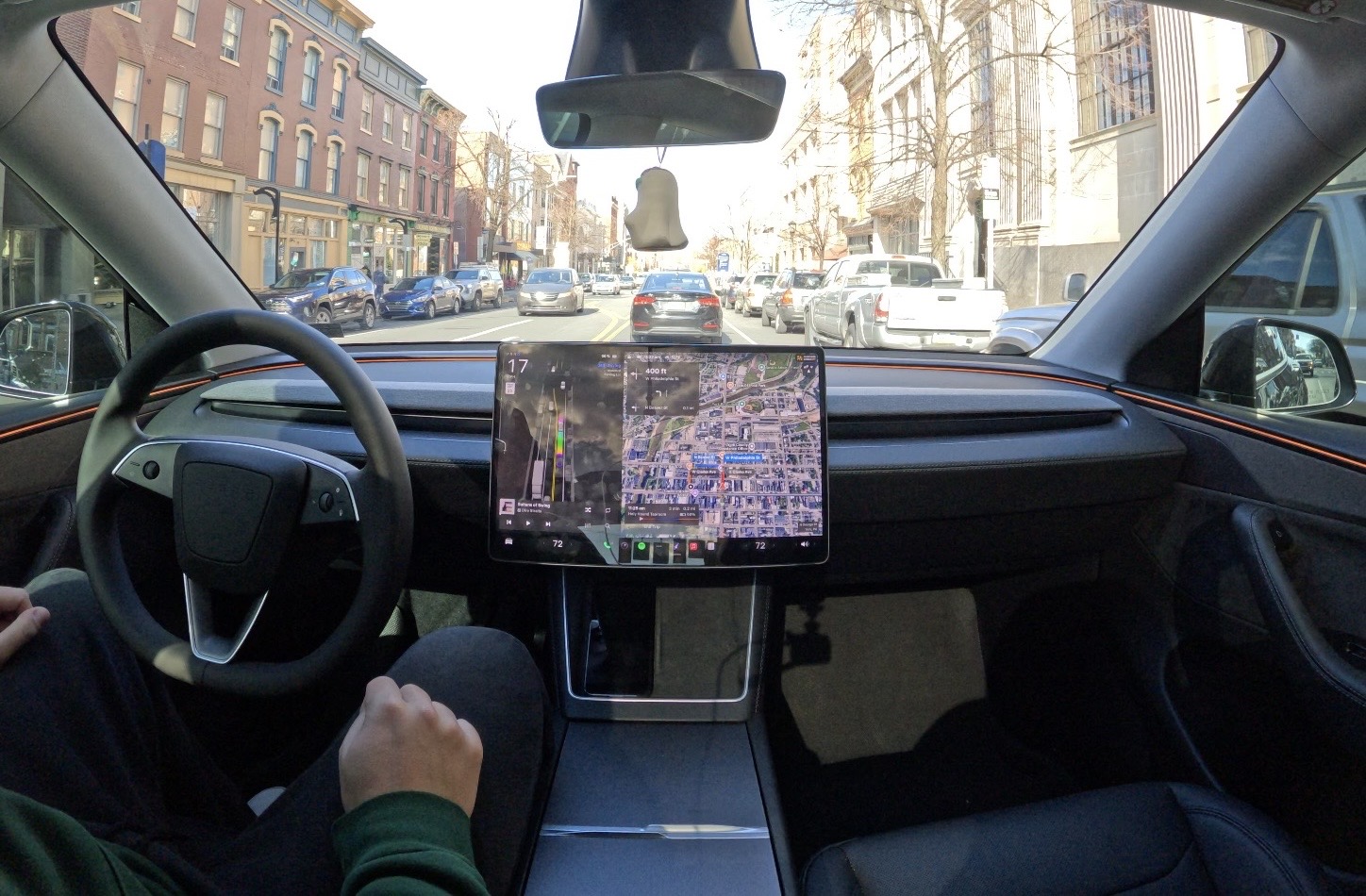

News
Tesla’s ‘Roadrunner’ facility gets a neighbor working on tech beyond the million-mile battery
As the wait for Tesla’s Battery Day continues, more and more speculations are abounding about what the electric car maker might reveal during the highly-anticipated event. Elon Musk has stated that Battery Day’s announcements will be mind-blowing, and based on apparent clues recently observed by the Tesla community, it appears that the CEO may be right on the money.
Recent reports have indicated that Amprius, a battery company currently working on silicon nanowire tech, recently relocated its headquarters to a site that’s just a few hundred feet away from Tesla’s Roadrunner battery facility in Kato Road, Fremont. Considering the firm’s focus, its new headquarters’ rather convenient location, and Elon Musk’s previous references to the use of silicon in batteries, there seems to be a fair chance that Amprius’ move to Fremont may be more than a coincidence.
Amprius notes that it is working on creating silicon nanowires for battery anodes that dramatically improve battery weight and density. The company’s website notes that silicon generally has about 10x the capacity of graphite (carbon), but it has a big drawback in the way that it swells when it’s charged, causing the silicon to fracture. To address this, Amprius utilizes silicon nanowires, which keeps the silicon from fracturing and breaking apart even when it swells.
As noted by EV enthusiast and YouTube host Driving Delta, Elon Musk himself appears to be teasing the use of advanced silicon tech on Twitter last month. In one of his posts, Musk shared some lyrics of the song “Lithium” by Nirvana, whose refrain includes sections that state “I’m not gonna crack.” Granted, Musk may simply be trolling the Tesla community with his posts, but it should be noted that he also talked about the increasing use of silicon anodes five years ago.
“We’re shifting the cell chemistry for the upgrade battery pack to partially use silicon in the anode. This is just a sort of baby step in the direction of using silicon in the anode. We’re still primarily using synthetic graphite, but over time, we’ll be using increasing amounts of silicon in the anode,” Musk noted during a 2015 conference call.
As noted by Amprius’ on its website, the use of 100% silicon paves the way for batteries with the highest energy density, perhaps even at the 500 Wh/kg level. That’s enough to start exploring electric VTOL projects, a topic that Elon Musk has admitted is something that truly interests him. That being said, Professor in Energy Materials and Technologies Ying Shirley Meng, who has made significant contributions to Maxwell Technologies’ battery tech herself, believes that challenges still remain in the use of silicon nanowires.
“We should pay attention to the cost per kg. Even (if) those nanowires work (which I doubt), to produce consistent quality in metric ton scale at 10$ per kg it will be sci-fi for now,” she noted.
Elon Musk, for his part, recently stated that the technology that could allow 400 Wh/kg with a high life cycle and volume production is not too far away. Musk gave a rough timeframe for the technology, stating that such milestones could be achieved in about three to four years.
Tesla’s Battery Day event is expected to introduce the company’s next-generation lithium-ion cells, though speculations suggest that these batteries — which are expected to last a million miles — are based largely on Maxwell Technologies’ dry electrode tech. Maxwell itself has previously noted that it could offer batteries with 300 Wh/kg while stating that it had also identified a path to 500 Wh/kg. With this in mind, it appears that Tesla may already be setting the stage for cells that will likely go even beyond the million-mile battery.
Granted, Amprius’ move to Fremont may be unconnected to Tesla. That being said, the two companies’ goals to align with each other, and Elon Musk’s own references to the use of silicon suggests that Tesla will likely get a lot of value from Amprius’ tech. If speculations prove true, the path to batteries that go even further than the million-mile mark may be feasible in the near future. Such innovations are key to Tesla’s goal of accelerating the transition to sustainable energy, after all.
Watch these recent takes on the Amprius rumors in the videos below.

News
Tesla starts removing outright Full Self-Driving purchase option at time of order

Tesla has chosen to axe the ability to purchase Full Self-Driving outright from a select group of cars just days after CEO Elon Musk announced the company had plans to eliminate that option in February.
The company is making a clear-cut stand that it will fully transition away from the ability to purchase the Full Self-Driving suite outright, a move that has brought differing opinions throughout the Tesla community.
Earlier this week, the company also announced that it will no longer allow buyers to purchase Full Self-Driving outright when ordering a pre-owned vehicle from inventory. Instead, that will be available for $99 per month, the same price that it costs for everyone else.
The ability to buy the suite for $8,000 for a one-time fee at the time of order has been removed:
NEWS: Tesla no longer allows buyers to purchase FSD outright in the U.S. when ordering a pre-owned vehicle directly from inventory. Tesla now gives you the option to either subscribe for $99/month, or purchase FSD outright after taking delivery (available until February 14th). pic.twitter.com/1xZ0BVG4JB
— Sawyer Merritt (@SawyerMerritt) January 23, 2026
This is a major move because it is the first time Tesla is eliminating the ability to purchase FSD outright for one flat fee to any of its vehicles, at least at the time of purchase.
It is trying to phase out the outright purchase option as much as it can, preparing people for the subscription-based service it will exclusively offer starting on February 14.
In less than a month, it won’t be available on any vehicle, which has truly driven some serious conversation from Tesla owners throughout the community.
There’s a conflict, because many believe that they will now lose the ability to buy FSD and not pay for it monthly, which is an attractive offer. However, others believe, despite paying $8,000 for FSD, that they will have to pay more money on top of that cost to get the unsupervised suite.
Additionally, CEO Elon Musk said that the FSD suite’s subscription price would increase over time as capabilities increase, which is understandable, but is also quite a conflict for those who spent thousands to have what was once promised to them, and now they may have to pay even more money.
News
Tesla Robotaxi has a highly-requested hardware feature not available on typical Model Ys
These camera washers are crucial for keeping the operation going, as they are the sole way Teslas operate autonomously. The cameras act as eyes for the car to drive, recognize speed limit and traffic signs, and travel safely.

Tesla Robotaxi has a highly-requested hardware feature that is not available on typical Model Ys that people like you and me bring home after we buy them. The feature is something that many have been wanting for years, especially after the company adopted a vision-only approach to self-driving.
After Tesla launched driverless Robotaxi rides to the public earlier this week in Austin, people have been traveling to the Lone Star State in an effort to hopefully snag a ride from one of the few vehicles in the fleet that are now no longer required to have Safety Monitors present.
BREAKING: Tesla launches public Robotaxi rides in Austin with no Safety Monitor
Although only a few of those completely driverless rides are available, there have been some new things seen on these cars that are additions from regular Model Ys, including the presence of one new feature: camera washers.
With the Model Y, there has been a front camera washer, but the other exterior “eyes” have been void of any solution for this. For now, owners are required to clean them manually.
In Austin, Tesla is doing things differently. It is now utilizing camera washers on the side repeater and rear bumper cameras, which will keep the cameras clean and keep operation as smooth and as uninterrupted as possible:
🚨 Tesla looks to have installed Camera Washers on the side repeater cameras on Robotaxis in Austin
pic.twitter.com/xemRtDtlRR— TESLARATI (@Teslarati) January 23, 2026
Rear Camera Washer on Tesla Robotaxi pic.twitter.com/P9hgGStHmV
— TESLARATI (@Teslarati) January 24, 2026
These camera washers are crucial for keeping the operation going, as they are the sole way Teslas operate autonomously. The cameras act as eyes for the car to drive, recognize speed limit and traffic signs, and travel safely.
This is the first time we are seeing them, so it seems as if Safety Monitors might have been responsible for keeping the lenses clean and unobstructed previously.
However, as Tesla transitions to a fully autonomous self-driving suite and Robotaxi expands to more vehicles in the Robotaxi fleet, it needed to find a way to clean the cameras without any manual intervention, at least for a short period, until they can return for interior and exterior washing.
News
Tesla makes big Full Self-Driving change to reflect future plans

Tesla made a dramatic change to the Online Design Studio to show its plans for Full Self-Driving, a major part of the company’s plans moving forward, as CEO Elon Musk has been extremely clear on the direction moving forward.
With Tesla taking a stand and removing the ability to purchase Full Self-Driving outright next month, it is already taking steps to initiate that with owners and potential buyers.
On Thursday night, the company updated its Online Design Studio to reflect that in a new move that now lists the three purchase options that are currently available: Monthly Subscription, One-Time Purchase, or Add Later:
🚨 Check out the change Tesla made to its Online Design Studio:
It now lists the Monthly Subscription as an option for Full Self-Driving
It also shows the outright purchase option as expiring on February 14 pic.twitter.com/pM6Svmyy8d
— TESLARATI (@Teslarati) January 23, 2026
This change replaces the former option for purchasing Full Self-Driving at the time of purchase, which was a simple and single box to purchase the suite outright. Subscriptions were activated through the vehicle exclusively.
However, with Musk announcing that Tesla would soon remove the outright purchase option, it is clearer than ever that the Subscription plan is where the company is headed.
The removal of the outright purchase option has been a polarizing topic among the Tesla community, especially considering that there are many people who are concerned about potential price increases or have been saving to purchase it for $8,000.
This would bring an end to the ability to pay for it once and never have to pay for it again. With the Subscription strategy, things are definitely going to change, and if people are paying for their cars monthly, it will essentially add $100 per month to their payment, pricing some people out. The price will increase as well, as Musk said on Thursday, as it improves in functionality.
I should also mention that the $99/month for supervised FSD will rise as FSD’s capabilities improve.
The massive value jump is when you can be on your phone or sleeping for the entire ride (unsupervised FSD). https://t.co/YDKhXN3aaG
— Elon Musk (@elonmusk) January 23, 2026
Those skeptics have grown concerned that this will actually lower the take rate of Full Self-Driving. While it is understandable that FSD would increase in price as the capabilities improve, there are arguments for a tiered system that would allow owners to pay for features that they appreciate and can afford, which would help with data accumulation for the company.
Musk’s new compensation package also would require Tesla to have 10 million active FSD subscriptions, but people are not sure if this will move the needle in the correct direction. If Tesla can potentially offer a cheaper alternative that is not quite unsupervised, things could improve in terms of the number of owners who pay for it.









